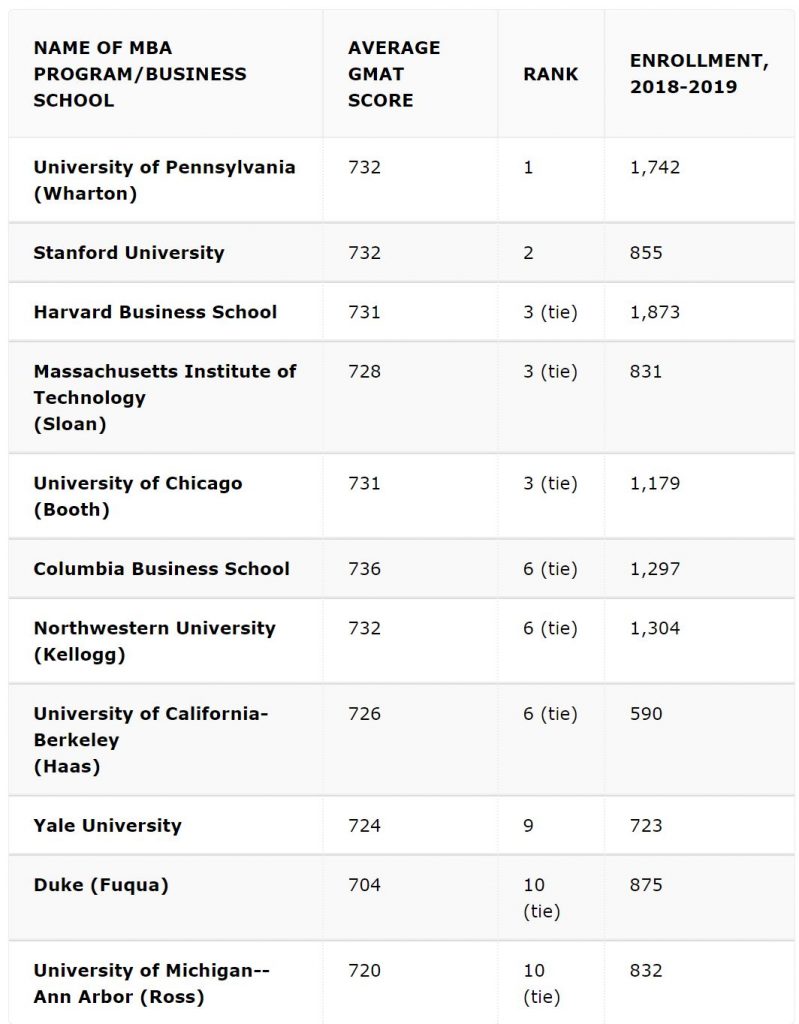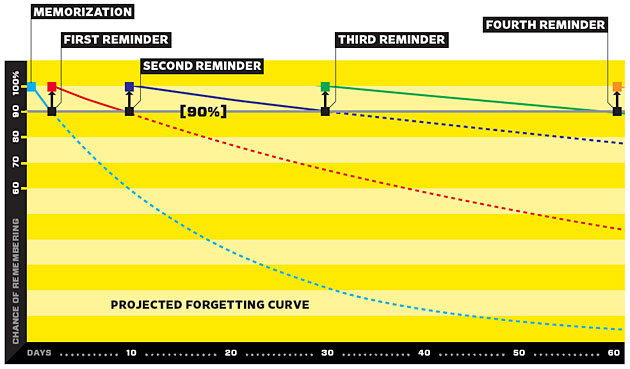This post written by Kiran Nasim, with editing by Trevor Klee.
Table of Contents
How to improve GMAT score from 550 to 700
Improve your GMAT foundation
When you score in 500s, the good news is that you have a lot of margin for improvement. The bad news is that you’re probably severely lacking in foundation.
To get that foundation, you should consider using the Manhattan GMAT guides. Once you have that foundation, you’ll need to use official questions to practice those strategies. Just knowing content doesn’t mean much if you can’t apply it.
In order to remember what you’ve reviewed, you should use an error log like 21st Night. This will help you be able to apply those strategies on test day.
Take practice tests
In between now and your test day, you’ll need to take a lot of practice tests. You shouldn’t just plow through them though. You need to review the tests after you take them.
Analyze your mistakes, and make sure you understand why you got the questions wrong that you did. 21st Night can help with that, if you take the time to categorize the questions that you got wrong.
Another helpful part of taking practice tests is that you’ll be able to see if your score is increasing. If it’s not, that’s probably a sign that you need to switch up your studying tactics.
Learn from those who’ve already taken the test
Search GMATClub for advice and learn from the knowledge and expertise of others. Group study is a great way to stay motivated, you may learn different methods to solve a problem and get to pick up shortcuts and more effective techniques. Even if you know more than the other posters, you get to practice your concepts by explaining to others.
Study consistently
We understand continuous study can be boring and we believe 1 hour of focus study is better than 4 hours of mindless reading. Set immediate goals for each day and do work every day. You need to be able to work consistently and through hard problems.
Find a workout routine or nightly relaxation routine so you don’t get overwhelmed by your studying. You can also see if the streak system in 21st Night helps you keep studying consistently.
530 to 700 success story
Gabriel’s determination improved his score by 270 points to achieve 700. He suggests the importance of identifying your weaknesses and focusing on improvement, thus he identified that even after three attempts he was weak in the verbal section so he focused more on his weaknesses. Almohri and Gabriel both suggest using GMATClub for guidance from the experienced test-takers.
How to improve your GMAT score past 700
So you gave the test and didn’t get your target of 700, you have the advantage of experience now and you know your flaws. Earning a 700+ won’t be easy but it will be worthwhile.
Create a study plan
Make a study plan accordingly; don’t dive in without your end goal in mind. You’re going to need to figure out when you’re going to put in the hours, what strategies you’ll need to learn, and how you’re going to review.
Perfect your foundation
You need a solid foundation before you can tackle any type of question. Make sure you know the concepts and make sure you know when and how to apply them.
A lot of students forget to study when they’re supposed to apply various techniques. You need to know what are the “triggers” for using certain equations, or else those equations are pretty much useless.
Manage your time
So, the best way to get faster at an exam is to become “fluent” in the questions. By that, I mean you need to be able to do the questions forwards, backwards, and in your sleep. Then you can speed up. 21st Night will help with that.
You also need to know when to skip questions. You don’t need to do every question. If you spend too much time on a difficult question in the beginning, you won’t have enough time to do the five easy questions at the end.
Study effectively
Keep in mind that your goal is to understand the material well. Don’t just mindlessly do questions, but actually understand the questions.
- Scott Woodbury-Stewart has this Tabula Rasa Rule: that if you can’t explain a concept using a sheet of paper and a pencil to a naïve person then you need to clear your own concept first.
Stick to a routine
You need to study consistently. Aim for at least an hour a day, and more on weekends. If you use a service like 21st Night, we’ll show you your streak of uninterrupted days to encourage you to keep studying. You can also try enlisting a study buddy (or accountability buddy) for help.
Target your error patterns
The best questions to do are the ones that you find difficult. Those are the ones that will teach you the most. You need to find a way of targeting exactly the questions that you find difficult in order to make sure you learn from them.
One possibility is to create a spreadsheet with your questions. That’s a method that I used for a while.
You can also use 21st Night, an error log app. It’s based around spaced repetition, so the questions you find most difficult are repeated for you most often.
Success story in scoring above 700
Laksh tells his story of scoring 730 in 8 days and recommends using Khan Academy. Khan Academy shows someone else going through the problems and is really advantageous when you are burned out of doing the calculation by yourself and your mind needs a break. Moreover, he suggests sticking to the official guide and using e-book formats to study so that you can get used to the test-room environment.
How to improve GMAT verbal score
Many students, especially native speakers, underestimate the value of verbal practice. You should understand that verbal section tests a particular set of skills that needs to be learned and practiced.
In other words, you can get pretty far on verbal just by being a native speaker. But, you’ll never get a great verbal score unless you study verbal extensively, the same way that you would quant.
Stewert suggests in his guide; “mastering GMAT verbal section”, to spend an equal amount of time on both quant and verbal if your goal is to score 700+. He recommends alternating between quant and verbal, this will prevent you from exhausting yourself over-studying one topic.
How to improve Reading Comprehension
Learn the technique of reading and digesting. Regularly read comprehensions to analyze and summarize faster and learn skimming method. Spend some time organizing and analyzing the data before attempting the questions. Write short notes next to paragraphs to quickly refer back.
How to improve Sentence Correction
Brush up your grammar. Make sure you learn basic grammar rules and can pinpoint the violations of these rules such as misplaced or dangling modifiers, subject-verb agreement, and pronoun usage. Practice these rules in your daily life, for example, instead of saying “I don’t know if it will rain” say, “I don’t know whether it will rain”. Learning to dissect answers and eliminating choices will eventually leave you with the correct choice.
Sherlock Holmes once said: “Once you’ve eliminated the impossible, whatever remains, however improbable, must be the truth.”
How to improve Critical Reasoning
In order to improve critical reasoning, you have to improve your understanding of the stimulus. Make sure you can pick out the conclusion and understand the reasoning that leads to it.
Don’t get fooled by your eyes and pick answers that seem overly bold, these are often overstatements designed to tempt you. Laksh suggests going over these with a friend to get a different point of view and test your own logic against theirs.
How to improve GMAT quant score
Perfect your basics
Math needs clear and strong fundamentals. You need to brush up your concepts of algebra, learn to do unit calculations and have arithmetic shortcuts at the top of your fingers. Laksh has provided some Random notes on the Math Topics, make sure you go through all of these:
- Ratios
- Factors and Multiples: memorize divisibility rule, Ex: A number is divisible by 9 if the sum of the digits is divisible by 9
- Memorize the square of 1 through 20
- Rates: Drawing a picture of the problem helps
- Systems of Equations
- Overlapping Sets: quickly draw and label a Venn diagram
- Right Triangle rules: use Manhattan GMAT book and the Official GMAT book
- Inequalities: Rearrange the inequality
- Exponents
- Percentages: Practice by drawing and shading
- Coordinate Geometry: Draw and count spaces carefully
Data sufficiency problems
Spend extra time on data sufficiency problems to make sure that you’re setting up the problem properly. The setup is key in data sufficiency, even more so than with problem solving. One way to address this is substituting appropriate values for the variables and testing their sufficiency
Be present
Focus on the current step instead of thinking in the future. Allowing your brain to be fully immersed in the current step of the problem will result in more accurate answers. You need to practice calculations by hand and have your pen, eye, and mind in sync. Usually, students are doing one step and thinking about the next step to work faster, but this will only result in inaccurate calculations.
Use an error log
Remember that one of the most powerful ways to grow is to learn from your mistakes. Analyze your mistakes through 21st Night: are you missing concepts or techniques, or just making silly mistakes? Careless mistakes can destroy your GMAT score, therefore, double check if you’re answering the right question after you finish solving a problem.
How to improve your GMAT score in a week
Have a clear learning objective in mind. Quickly go through fundamentals of math and verbal and note your weaknesses. You don’t have time to learn new concepts but you can strengthen old ones by studying mistakes using an error log, like 21st Night. Make a study plan and 21st Night will make sure that you follow it as you can’t afford distractions in this timeframe.
Check the timing for every problem you are solving. If you can’t solve a problem in targeted time, skip it rather than wasting time. Have shortcuts in hand to be quick and fluent. If you use 21st Night, its mastery system can create fluency by providing skills to identify similarities between what you practiced and what you are attempting in the exam.
Another important thing is to create a test-center environment to familiarize yourself with the physical and mental circumstances of the test day as much as you can. Don’t take breaks and always stick to the time limits of the actual exam.
Your time is valuable so you should spend it on the material that will reward you in the greatest run. Laksh tells his strategy of scoring 700+ in a week by using these e-books so that you get in the habit of using a computer to be prepared for the test day. It’s important to note that, if you do only have 7 days to prepare, you should use only the Official Guide for GMAT Review (OG) as you don’t have time to consult other sources.
How to improve your GMAT score in 2 weeks
Week 1
Take a mock test and note your error log to be used in 21st Night for the revision stage. You can only afford targeted study at this time so for the first-week focus on quantitative practice. Go quickly through the topics you think you are strong at and focus on your weaknesses using 21st Night.
A few topics tend to be seen in the practice tests and official tests more often than the others. Jinaru suggests in his 2-week study plan, to go through the first three chapters of the Number Properties Guide and the Word Translations Guide respectively, and chapters 1,2 and 5 of the Geometric guide.
Week 2
You should do targeted verbal practice in this week. Solve a few problems and check your English comprehension level, you may not need to spend too much time on the verbal section if you are a native speaker but you do need to revise grammar rules. We do recommend not under-estimating the verbal section by assuming English fluency is enough; check your skills and plan accordingly.
Review what you have studied. 21st Night is helpful for this. Lastly, relax to be prepared for the test day.
How to improve your GMAT score in a month
The more you do quality study and effective practice, more all the chances of improvement. Laura presented a breakdown of how long test-takers study, on average for GMAT from a survey conducted in 2014 by the Graduate Management Admissions Council (GMAC).
Based on GMAC data, below are the estimates of how long to study corresponding to how many points you need to improve:
0 – 50 point improvement: 50 hours
51 – 100 point improvement: 100 hours
101 – 150 point improvement: 150 hours
Week 1: Polish your concepts: utilize the time you have. Take a mock test and pinpoint your weaknesses
Week 2:Work on new topics and concepts but also review the old ones. 21st Night will keep you on track in this aspect by repeating the questions you marked difficult more often and the one you find easy less so that you will be accustomed to both types.
- Take another test
- Quantitative focus
Milliman suggests spending 2 hours on algebra, geometry, word problems and number properties each. Pick three top topics for GMAT from each of these and build your knowledge, exercise and point your weaknesses.
Week 3: Analyze your weak points and spend more time on correcting the mistakes by measuring your proficiency level using 21st Night.
- Take another test
- Verbal focus
Again Milliman recommends in her 50-hour study plan, spending 2 hours each on the verbal section, sentence correction, and comprehension.
Week 4: Check your progress by taking a practice test in one sitting. Review your difficulties using 21st Night, this will make sure that you don’t get stuck reviewing topics that won’t have a big impact on your score.
Lastly, don’t overwhelm yourself right before the test. Eat a healthy meal, go through your normal night routine and get a good night sleep. You have done a lot of studies this last month; last-minute cramping won’t do any good, you need to have a clear and calm mind for the next day test




